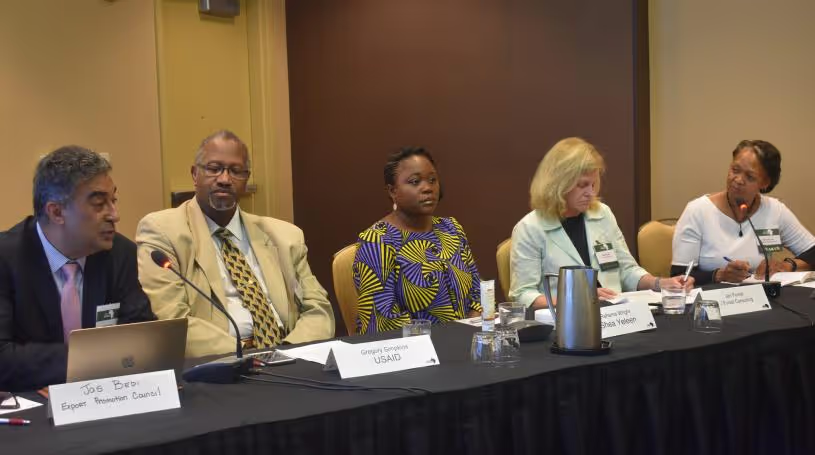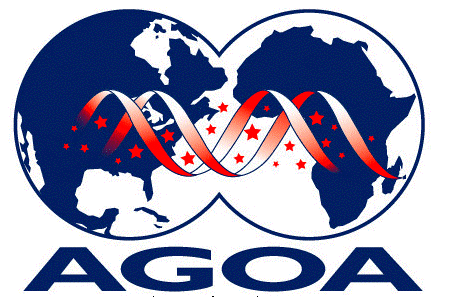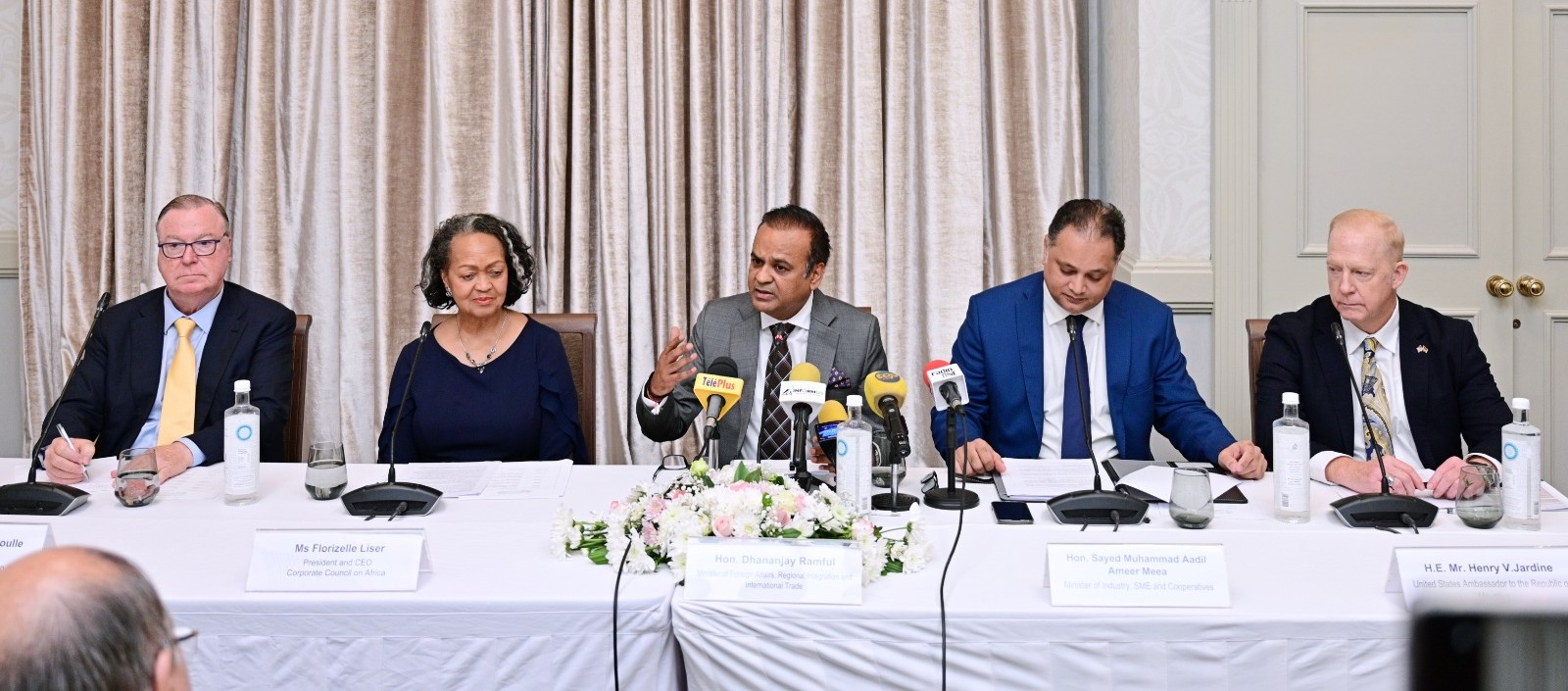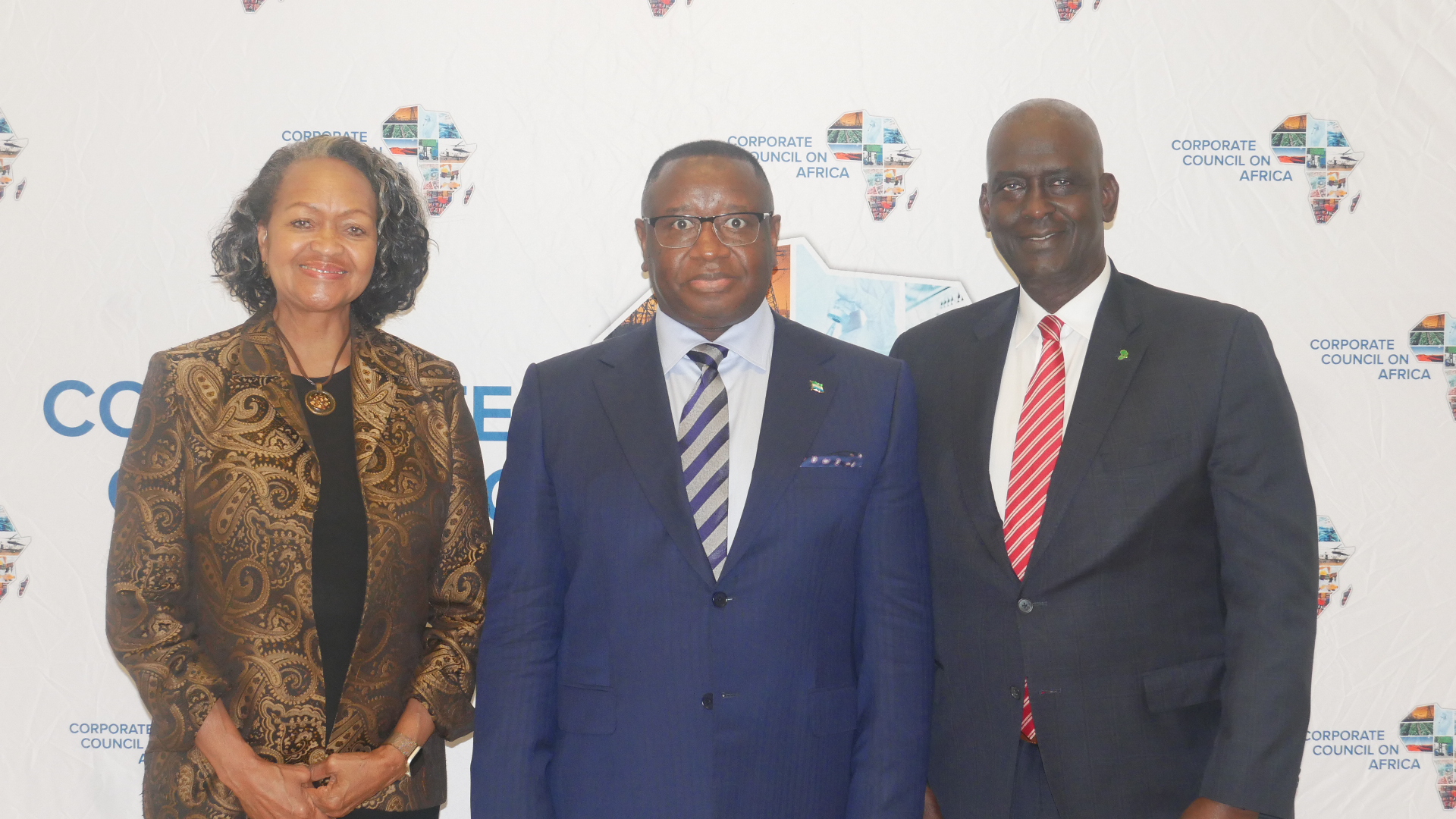AGOA Private Sector Forum Panel I: AGOA Success Stories

Florie Liser introduced and moderated the panel, which included: Jas Bedi, Chairman of the Export Promotion Council of Kenya; Greg Simkins, Senior dvisor, Africa Bureau, Office of Sustainable Development, USAID; Rahama Wright, Founder & CEO, Shea Yeleen; and Jan Forest, J. Forest Consulting.There was general agreement that AGOA has provided a good base over the last 18 years for eligible African countries to establish markets in the U.S. Several participants noted approvingly that the range of AGOA products continues to broaden.Unfortunately, there was also a general sense that African countries could and should do much more to take advantage of the access they have under AGOA during the remaining seven years of eligibility. Delegates offered specific suggestions on ways African companies can improve their performance, including sharpening their understanding of and compliance with the documentary filing requirements, such as getting the right textile visa for cloth products. Participants also recommended that African companies develop a more sophisticated understanding of exactly who their customers might be in the United States. They also recommended making sure African companies can provide the quality and sustained delivery and service that American customers demand. Several participants recommended that African countries expedite their customs procedures at the border, which can preclude both exports and imports of time-sensitive products.There was general consensus that African governments can do more to make their companies successful. One important step would be for those 26 countries which have not yet completed an AGOA utilization strategy to work with the USAID regional trade hubs to do so.African governments should also consider steps to open new market sectors, both in their own countries and in the United States. Increasing connectivity is one-way countries can achieve that. One participant noted that Kenya establishing direct air service to New York this September would not only bring more businessmen in both directions – it would also make it commercially feasible for Kenyan companies to export significant products like cut flowers to the U.S. African governments could also do a lot to open markets in both directions by adopting more international standards. In the case of medical devices for example, altering regulatory requirements to treat these products like equipment, rather than like pharmaceuticals, would make it possible to develop local partnerships, which in turn would spur innovation in health sectors across the continent.Governments could also help remove significant constraints, particularly for smaller businesses, as well as think through how they might better support companies looking to move up the value chain to process products in Africa, rather than export raw or unfinished products.



